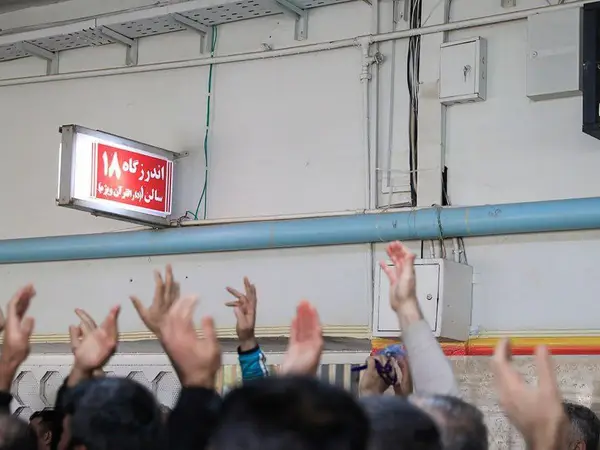Iranian human rights organizations, activists and defense lawyers have slammed a partial prisoner amnesty for protesters announced by the country’s ruler Ali Khamenei.
Iran Human Rights group in a tweet immediately on Sunday announced that the amnesty claim is a “deceitful” step by Khamenei, demanding that all protesters should be freed “unconditionally”, and instead those responsible for repression should be tried in courts.
Protesters were exercising their right to peacefully demonstrate and arresting them had no legal bases, Iran Human Rights said.
Government media reported Sunday that Khamenei had “agreed” with a proposal by the country’s Judiciary to free those who were “misled” and took part in protests.
It is still not clear how many or which prisoners will be pardoned and whose sentences will be reduced. While thousands of young and teenage protesters were arrested in street demonstrations, hundreds of political activists, journalists and writers or artists have also been detained.
Khamenei’s move came days before the 44th anniversary of the Islamic Republic, as a move to rescue the regime’s image amid a grim economic crisis and mass public rejection of the political system he presides over.
The hardliner judiciary has attached so many pre-conditions for any prisoner pardon, that no one knows how many will be freed, while some state media claimed “tens of thousands” will be released.
Some of the conditions for being pardoned were mentioned in the announcement, including no record of spying for a foreign country, no connection with foreign intelligence services, not facing a charge of murder and no accusation of destroying public property. The regime’s security forces and courts, meanwhile, have held thousands of detainees exactly based on these sorts of charges.
A lawyer defending several detained protesters tweeted that Khamenei’s move was nothing more than “imposing the fake version of reality by the regime,” which attempts to switch the guilt from itself to the victims.
Almost all court proceedings have been held behind closed doors, after many detainees were tortured to confess to trumped-up charges. Also, in most cases defendants were not allowed to have their lawyers in the court or even have access to case files.
A former political prisoner Hossein Qashqai tweeted, “It is us who should issue pardons, not you, who carry the blood of our dearest and best children on your hands. We will never forget and forgive.”
Prison interrogators often demand that detainees to sign self-incriminating apologies and pledge not to engage in antigovernment activities. Shahriar Shams, a former prisoner, quoted one his friends who is still behind bars that if the authorities free them unconditionally, it would be fine, but if they demand any letter of remorse “we will not give them anything. We should be the ones to pardon them.”
A Dutch member of the European Parliament tweeted Monday that “Freedom shouldn’t depend on a dictator’s whims. This is hypocrisy and we won’t be fooled.”
European countries have exhibited tough reactions, compared to the past, to Islamic Republic’s bloody suppression and the hanging of four protesters after sham trials. The European Parliament last month passed a resolution demanding Iran’s Revolutionary Guard to be listed as a terrorist organization by the European Union.
Some Iranian conservative supporters of Khamenei have been surprised by the international backlash and admit that the regime is now more isolated. But Khamenei seems to be determined to make no real concession. In one of his recent speeches he said, “In the old days when wounds did not heal, they cauterized them.”
